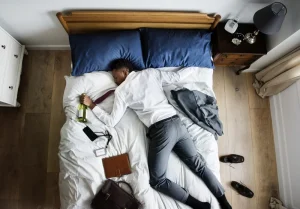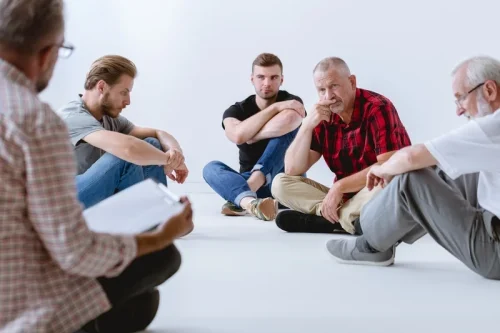List of Phobias: Common Phobias From A to Z

To avoid such feelings, people with phobias may avoid any situation where they might potentially encounter the source of their fear. Addicts will have to face their relationships with people again, with their families, friends, and co-workers. They may have wronged some of these people, or they might be embarrassed about how they once acted. They’ll have to feel emotions again without numbing them with drink or drug and maneuver their way through tricky family and relationship dynamics. Addiction can be a way to avoid the things we don’t want to deal with. Sobriety means having to face uncomfortable truths about ourselves and others and having to stand up and be who we are.
Sobriety Fear #9: You won’t be able to handle your feelings without alcohol.
- In 2015, an estimated 8.1 percent of the U.S. population aged 12 or older needed substance abuse treatment.
- Most people will need ongoing support groups for some time after detox.
- All of which are just some of the many reasons why being sober far outweighs being addicted to drugs or alcohol.
- There is often initial fear in addiction recovery.
- These people can remind you of everything you’ve worked hard for and provide motivation to keep going.
I don’t think it’s change that you’re so afraid of. If you didn’t want to change, you wouldn’t bother to get sober. On the one hand, you hate what your life has become due to drinking. On the other, you’re scared to death of what sobriety will do to your world.
A future free of addiction is in your hands
Those with anxiety and addiction can feel like there’s no other way to regain power over their mental states than to turn to substance abuse. For many people who want to get sober, managing coexisting anxiety can be a crucial and complex part of recovery. While the journey might feel daunting, it’s certainly possible to overcome it with the right tools and support. Any big life change naturally brings a sense of fear or unease. It is very normal in the early days to feel like you’ve resigned yourself to a life of misery by quitting alcohol. Those early days of sobriety may leave you feeling hopeless.

Common Fears in Recovery and How to Overcome Them
What you do NOT want to do is let your fear about what MIGHT happen with your friends in the future dictate what you do to take care of yourself in the present. With proper counseling and/or a good fear of being sober recovery program, you’ll learn important tools for navigating these relationships. Another common fear in sobriety is that you’ll wind up alone because no one will want to hang out with you.

The most effective addiction treatment requires compassion, warmth and empathy. And this is the approach that your rehab team will take. Drug addiction specialists will always try to instill your recovery process with optimism and hope. They will help you to build self-confidence and allow you to realize the power you have to maintain sobriety. Remember, an untreated substance addiction will grow.

Complete our convenient online form to connect with an Evoke Wellness treatment specialist.
We are biologically wired for companionship, so this is a very real and instinctual fear to have. There are plenty of things people do that do not involve or center around alcohol. You might be a little bored at first, but with time, you’ll discover new and more fulfilling things to do with your time. If you’ve spent the last umpteen years being THAT girl or guy, partying hard, struggling through the days hungover, and doing it all again – sobriety means an entirely new identity. It sounds like a weird thing to be afraid of, but it’s very real. The more you scratch it, the worse it’s going to get.
- The truth is, you have been using drugs or alcohol to cope with your feelings and maybe even symptoms of mental illness.
- They can guide you to the right treatment, which may include psychotherapy or medication.
- You might be a little bored at first, but with time, you’ll discover new and more fulfilling things to do with your time.
- On the other, you’re scared to death of what sobriety will do to your world.
- You’ll know you will be taught the tools to prevent a relapse and to deal with one if you do relapse.
Getting Ongoing Help From FHE Health Can Help
Your therapist will discuss your specific concerns, life history, family history, and factors that might trigger your anxiety. Also, many people who are addicted may have an undiagnosed co-occurring mental health disorder, like depression or anxiety. Addiction treatment will address the co-occurring disorder and help the person find ways to treat the depression or anxiety without substances. A journey can begin with community mutual-help groups, inpatient treatment, residential rehab, outpatient programs, and more. Depending on the severity of addiction and readiness to change, different options may be beneficial for different people. But seeking a professional opinion on where to get started can help alleviate and address your particular fears.
We may have to face all kinds of adversities and personal challenges while we come clean. The first thing is that sobriety can be a really hard thing to face for a lot of addicts. There’s the chance that they might not make it through it, they could fail, and then there’s the pressure to succeed. There’s a fear of a life without the ability to ever drink or take drugs again.
Scared of Being Sober: Why Is Sobriety So Hard?

You might even think that addiction rehab is all about shaming addicts with their addiction and trying to force them to quit. Yet, this is far from the way that drug rehab centers actually operate nowadays. Your addiction rehab team will always endeavor to treat you with respect and without judgment.